Runes Launchpads: Platforms for Etching and Minting Runes
As interest in Runes protocol declines, now is the perfect time to learn about etching, minting, and launching fungible tokens on Bitcoin. This guide covers Runes launchpads, wallets, and Bitfinity's role in scaling tokenization.
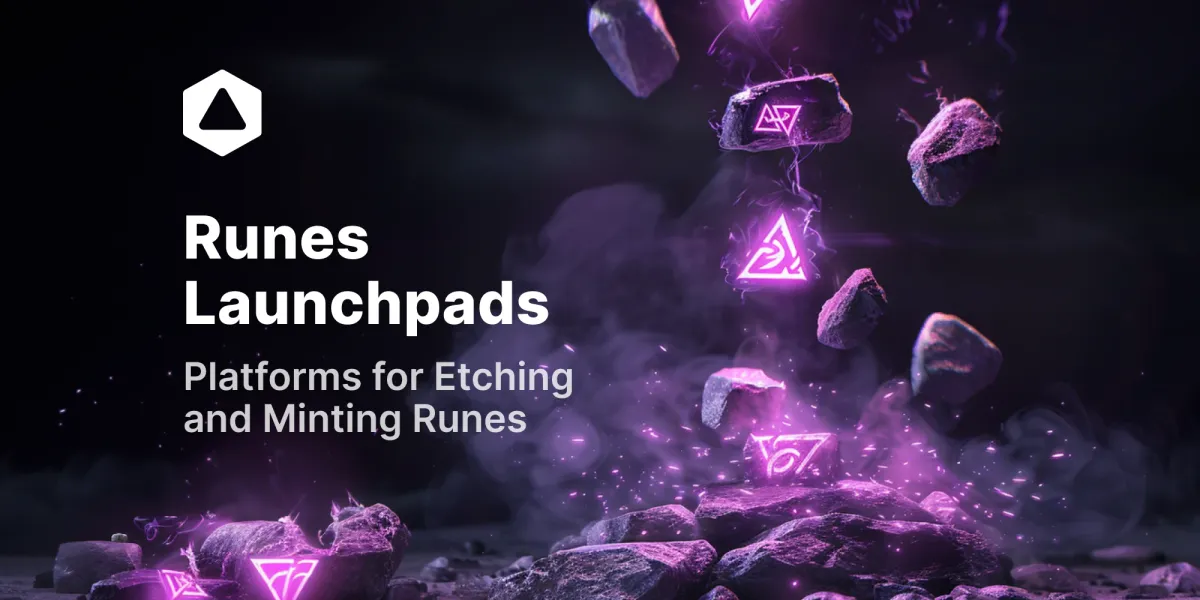
In the fast-paced world of crypto, market attention is constantly shifting from one trend to another. As all people tuned in chase the latest hype, whether it's memecoins, SocialFi, or the Bitcoin ecosystem, the contrarians recognize the opportunity to learn when attention is directed elsewhere. One such opportunity lies in the realm of Runes and fungible tokens on Bitcoin.
In this article, we'll explore the key concepts of etching, minting, or altogether 'launching' Runes, as well as provide some info on how this is possible. This will be our second article introducing the novel concept of Runes, which are a new standard of fungible tokens on the Bitcoin blockchain.

In our recent article, we explored how the Runes Protocol is innovating on top of Bitcoin, enabling these new fungible tokens and assets. It delves into key concepts such as ordinal theory, runestones, and the differences between Runes and other token standards like BRC-20. If Runes are completely new to you, we advise you to read up to understand this groundbreaking development. 👇
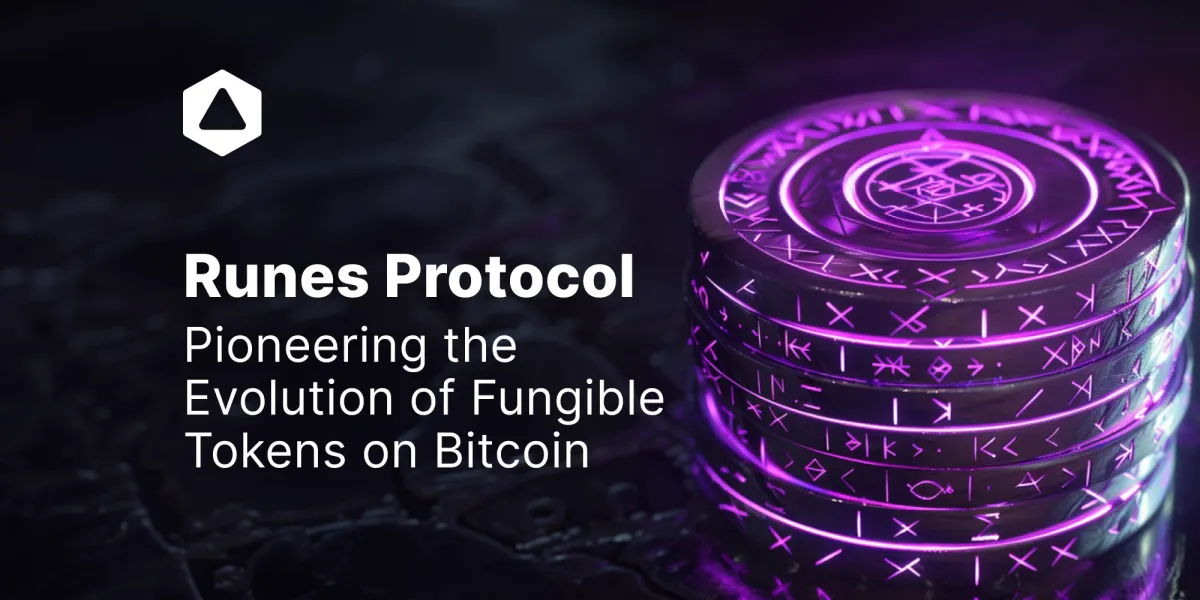
Key Terms to Understand When Dealing with Runes
Before telling you how to dive into the world of Runes yourself and how to launch them, it's essential to understand a few key terms that could be interesting to know before you even think of contributing to Runes:
- Etching: Runes come into existence by being etched. Etching creates a 'Rune' and sets its properties. Once set, these properties are immutable, even to its etcher.
- Minting: While a Rune's mint is open, anyone may create a mint transaction that creates a fixed amount of new units of that Rune, which needs to be in line with the terms of the mint set by the etcher.
Rune Etching Explained
As we know, Runes come into existence through etching, which creates the Rune and sets its immutable properties, these include:
- A Name: The Rune name can be 1-26 letters long and contain A-Z.
- Divisibility: This relates to how finely the Rune can be divided, expressed as the number of digits that are allowed after the decimal point.
- A Symbol: A single Unicode character displayed after the Rune quantity.
- Premine: This is an optional allocation of Rune units to the etcher upon etching, similar to normal token launches.
- Mint Terms: These specify if the Rune has an open mint allowing anyone to create units, or other terms such as a cap or amount of Runes, amount per mint, height range, etc.
Now that we know some of the very basic terminology of Rune etching, i.e., bringing them onto the Bitcoin blockchain, we can start to contemplate how to do it ourselves. Whether you want to mint one or even etch an entire collection, we've got you covered.
What is a Runes Launchpad?
A launchpad for Runes is a platform that facilitates token offerings and enables projects to raise funds and launch their tokens in a decentralized and community-driven manner.
To ensure the success of your token offering, in this case on the Bitcoin blockchain and via Runes, and avoid falling for the many scams, it's crucial to select a reliable launchpad. So, choosing one of the many remains all there is to do.
In the next section, we are going to take a look at some platforms that offer inscribing Runes and provide a way to launch your very own Runes collection and/or join the party when wanting to mint an existing collection.
Ordinalsbot
First one is OrdinalsBot, which is a versatile platform that allows users to generate inscription orders from anywhere. One of its key features is the ability to use either Lightning or on-chain Bitcoin for launching Runes.
Once the inscription process is complete, the platform sends the inscriptions to the user's provided Bitcoin address in direct delivery.
Ordbit
The second one is Ordbit, which is another platform that plays a role in supporting the growth and development of the Runes Ecosystem. It offers a straightforward inscription service that takes user-provided files as input, inscribes them on the Bitcoin blockchain, and sends the inscribed UTXO (Unspent Transaction Output) to the specified Bitcoin address, and where you see how much is already minted and how much is not.
The platform has already gained traction within the Rune community, with many OG projects choosing to distribute their Runes through the platform.
CraftRunes
CraftRunes is another Rune Launchpad that lets you etch and mint Runes. There is also a transfer function and a leaderboard to see who has the most mints via the platform.
The users that mint and etch the most get points allocated via the platform and appear on the leaderboard.
Rune Btc
Another launchpad is Runebtc, which recently launched Runes Bulk Transfer, allowing users to send Runes to up to 1,000 recipients in a single transaction. This is an interesting feature for anyone who wants to airdrop their own Runes to their community members.
Luminex
Luminex is yet another platform for various Bitcoin-related token standards, including BRC20 tokens, Ordinals, and Runes. They claim to be the largest Runes platform, with over 2/3 of all Runes being etched using their service.
They also have a Rune Explorer page with social media verification and a progress bar for better understanding of the block limit mints and max supply levels.
SatsX
SatsX is a decentralized trading platform that is specifically designed for assets within the Bitcoin ecosystem. It aims to provide a fast, secure, and user-friendly environment for enthusiasts to launch various Bitcoin-based assets, including Runes, besides many others.
Runetoshi
Runetoshi is a platform that allows users to create various Runes on the Bitcoin network. Like all the platforms listed above, users can easily see trending Runes and track analytics.
Magic Runes
The penultimate item on the list is Magic Runes, where each Rune token can be minted through your own Bitcoin wallet. Each Rune has its own unique name, total supply, minting progress, number of mints, and number of holders.
MetaRunes
We finish the list with MetaRunes, a fully decentralized protocol designed for launching new ideas on Bitcoin. Open to anyone, it also serves as an incubation hub for the Rune protocol.
Step-by-Step Guide on How to Inscribe Runes on Bitcoin?
As we already know, inscribing Runes is nothing more than creating fungible tokens directly on the Bitcoin blockchain. Now that we know where to create them, let's take a look at a step-by-step tutorial on how to inscribe Runes on Bitcoin:
Step 1: Set Up Your Wallet
Before connecting to launch a Rune, you have to ensure you have a compatible Bitcoin wallet that supports the Runes Ordinal Protocol. This wallet needs to be funded with the necessary Bitcoin for inscribing Runes. Check out our previous article for help finding the right wallet for this ecosystem.
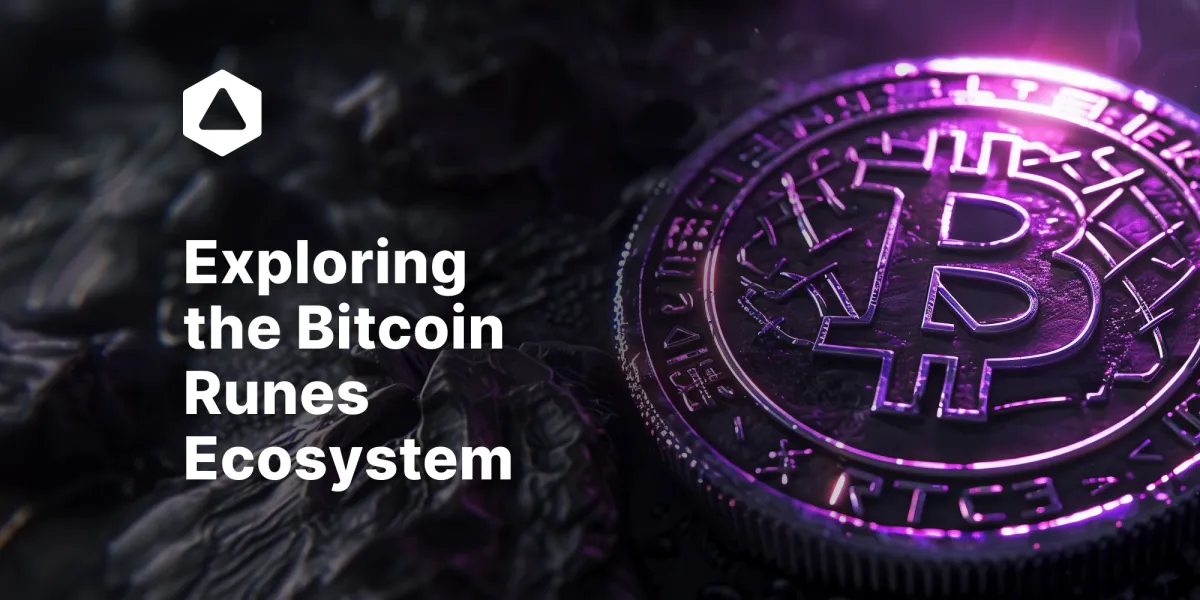
Step 2: Access the Inscribing Platform/Launchpad
Navigate to your preferred launchpad (one of the many examples above). Log in to the inscribe page or connect your wallet.
Step 3: Select Token Type
Choose the option to inscribe, mint, or etch Runes on the platform. Select the type of token you wish to create and inscribe.
Step 4: Specify Inscription Details
Enter the quantity of tokens you want to inscribe or etch.
Input the specific details for each inscription, such as token amount, token ID, and any additional information required.
Step 5: Confirm and Inscribe
Review all details carefully to ensure accuracy.
Confirm the inscription request and proceed with the transaction. You will be asked to pay the associated fees for inscribing Runes on the Bitcoin blockchain.
Step 6: Wait for Confirmation
After finalizing your transaction, allow some time for the inscription process to be completed on the blockchain. You can monitor your wallet or the platform for confirmation of successful inscription.
Step 7: Manage Your Inscribed Runes
Once confirmed, you can view and manage your inscribed Runes within your wallet or on the inscribing platform. You can also do this on the Mempool Space website. There, you'll find a lot of information, but the most important thing to know is the status of your transaction.

Why Might My Transaction Not Go Through?
What if you minted or etched but your transaction didn't go through? Well, there are two main reasons why your transaction might not go through:
- Not Enough Fees: f the fees for the current block skyrocket and you set a lower fee amount, you will get kicked to the next block until fees decrease below the amount you've set. If the Rune mints out while you are waiting in the mempool, you unfortunately lose your fees.
- Getting Sniped: The mempool allows for someone to "snipe" your transaction by replacing it with a transaction with higher fees. If you get sniped, you unfortunately lose transaction fees.
The term "sats/vbyte" refers to the number of satoshis users are willing to pay for each virtual byte (vbyte) of transaction data. A higher fee usually means a faster confirmation time, as miners prioritize transactions with higher fees.
What File Types are Supported for Direct Inscription Orders?
Supported file types for inscribing on the Bitcoin blockchain include:
'apng', 'flac', 'gif', 'html', 'jpg', 'jpeg', 'mp3', 'pdf', 'png', 'svg', 'txt', 'wav', 'webm', 'webp', 'mp4', 'stl', 'glb', 'avif', 'yaml', 'yml', 'asc', 'json', 'js', 'css', 'gz'. This could vary from launchpad to launchpad.
No Charts for Runes
Currently, there are no charts available for keeping track of Runes, which shows how new this ecosystem is. Because of its newness, you have to rely on your own spreadsheet, memory, or one of the many trackers that can be found on various platforms that list Runes. To get a visual of the total Runes market, you can check out Runes Market Cap for more information.
How Runes Relates to Bitfinity
Knowing the ins and outs of Runes is not only important for anyone new in the space, it is also interesting for the infrastructure that is being built. With the coming of Runes, Bitfinity could offer a more than intriguing combo for hyperbitcoinization.
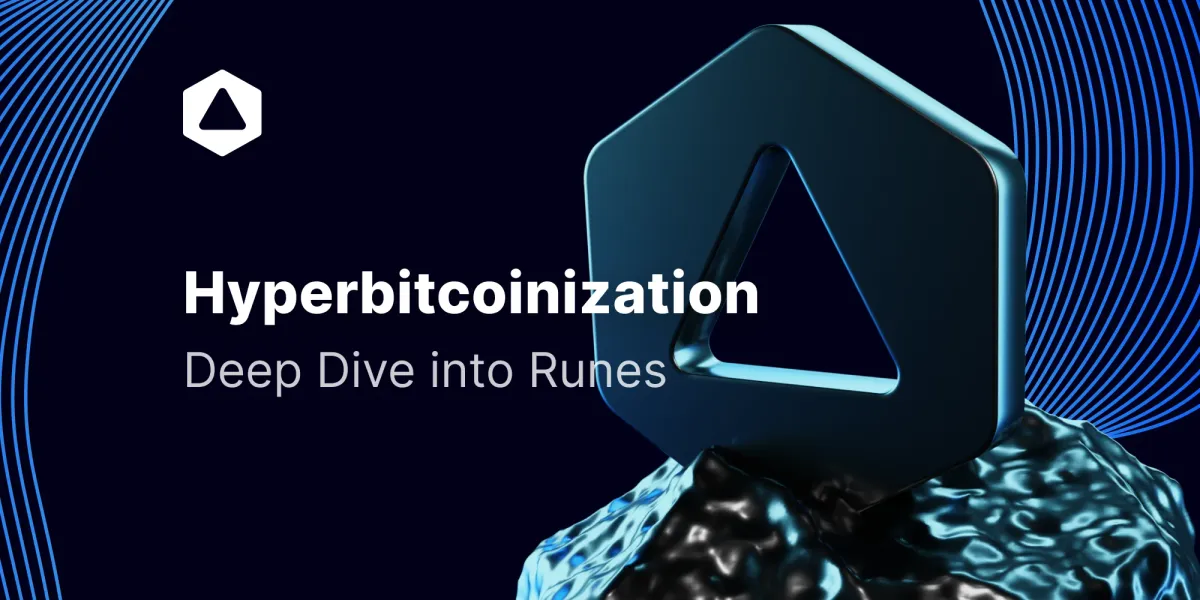
A new level of inscriptions and token issuance directly on the Bitcoin blockchain, where Bitfinity provides the infrastructure and scalability to support and most importantly scale this efficiently.
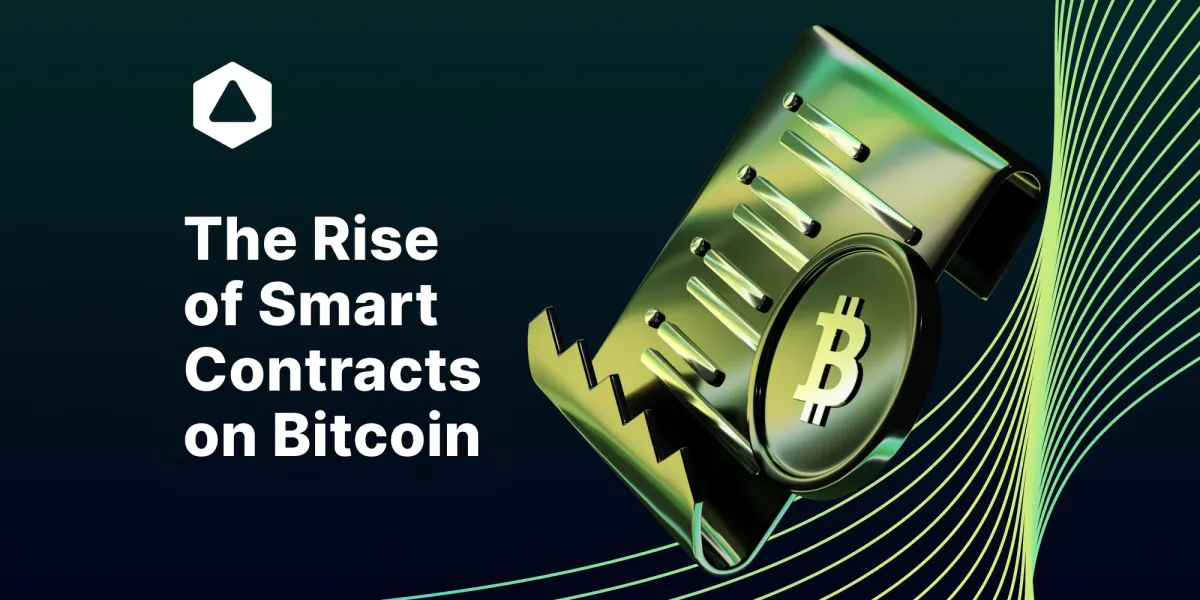
It is Bitfinity's unique technology, which is built on that of the Internet Computer, that will allow a seamless integration of Ethereum-based DeFi protocols and will form the bridge between experimenting on Bitcoin and finding massive liquidity while doing so.
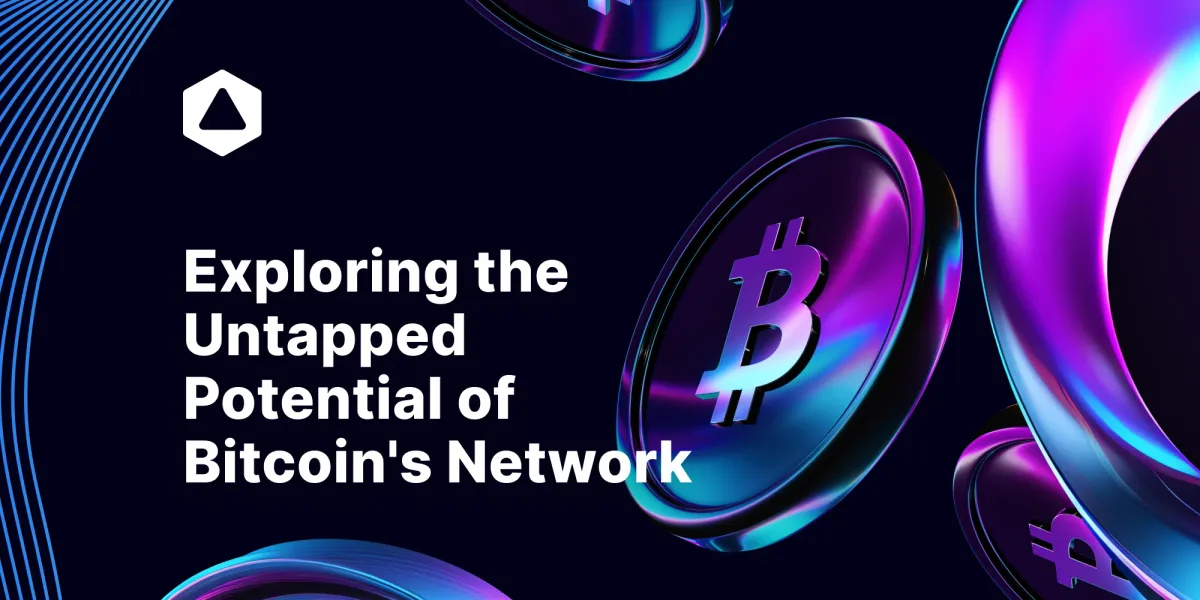
Conclusion
Runes, which knew a bigger frenzy than now, has seen a decrease in attention and, consequently, a dip in usage. However, the fungibility of tokens on Bitcoin is not going to disappear. Interest is fading but not going to oblivion.
With the narrative surrounding Runes remaining solid, the potential building blocks that extend the capabilities are substantial. Therefore, it could be interesting to keep up to date with the latest developments of this emerging ecosystem, all powered on the biggest and most trusted blockchain. It is a unique chance for anyone interested to learn a little about how they work.

Connect with Bitfinity Network
Bitfinity Wallet | Bitfinity Network | Twitter | Telegram | Discord | Github

*Important Disclaimer: While every effort is made on this website to provide accurate information, any opinions expressed or information disseminated do not necessarily reflect the views of Bitfinity itself. The information provided here is for general informational purposes only and should not be considered as financial advice.




Comments ()